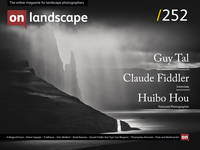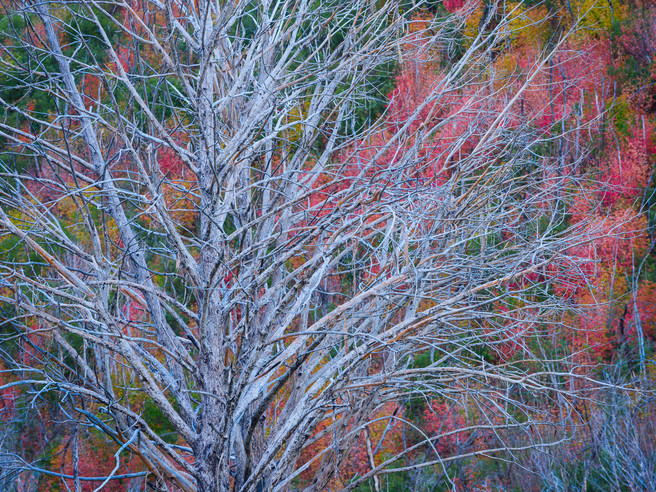Where would you like to be in 5 years?
You will never find yourself unless you quit preconceiving what you will be when you have found yourself.~ Robert Henri
I don’t photograph when teaching workshops. My temperament is such that I can’t produce meaningful work when other people are present when I can’t take a prolonged time to become mindful, to contemplate the nuances of my surroundings and my inner experience, and to consider creative possibilities. Certainly, I can make beautiful, successful photographs without these things, but such photographs would be meaningless and unsatisfying to me. As such, my favourite parts of leading photography workshop are times spent in the classroom, especially when conversations drift beyond the scripted material to more philosophical topics related to living and working as an artist. One such recent conversation was about the topic of success.
Discussions of success often revolve around how one defines the term. This time, however, the conversation started when one of the participants asked a different question: how do you know you have achieved success? Thinking about success in these terms—reflecting on past experiences rather than aiming for future accomplishments—proved revealing. My response (paraphrased from imperfect memory) was this: some days, especially when out in a remote natural place, revelling in peace and beauty, conscious of and grateful for my good fortune to be able to be where I am, to do what I do, feeling inspired, even awed, recognising that these are not fortuitous anecdotes but the theme to my everyday life—or even just the memory of such experiences—I feel I have succeeded.
Most people think about achieving success as a forward-looking progression: first, define what success is, then design a strategy to accomplish success, finally congratulate yourself if you have succeeded in what you set out to do (or wallow in self-recriminations and doubts about your self-worth if you haven’t). This strategy has never worked for me. Even in times when I set grandiose goals for myself and managed to achieve them, I didn’t experience the elation that most people expect to feel when achieving success. On the other hand, when reflecting on my life—the things I got to see and experience, the improbable and turbulent path I took to get where I am—I take pride not only in finding success but also in learning—by experimentation, by occasional failure, by coincidences and serendipity—what success means to me, which I could not have known until after I found it.
Recalling some job interviews I’ve had in former lives, I remember my difficulty answering such trite questions as “where would you like to be in 5 years?” Of course, at the time I made up a contrived answer having to do with professional aspirations: a feigned desire for more senior titles, greater responsibilities, higher pay. Still, as my mind was attempting to formulate this answer, I would also hear a voice within me answering inaudibly but earnestly, “I would like to earn my living doing something more interesting than working here,”.
Over the years, I have heard many accounts of professional photographers lamenting that the reality of their lives is very different from what they thought being a professional would be like. This has not been my experience. Before becoming a professional, I imagined it to mean being able to spend as much of my time outdoors as I wanted, photographing almost any time I wanted to, having more time to pursue personal interests, and learning to make do with less income than I had in my former corporate career. This is exactly what becoming a professional turned out to be for me. That may sound like a success story, but what I couldn’t know in advance is that this was just the first chapter.
What I couldn’t foresee when deciding to take the proverbial plunge into professional photography, was that these accomplishments in themselves would turn out to be means, and not ends—means for discovering greater ends than I knew, or could have known, are possible.
My true measure of success as I consider it today, is not any goal I had set for myself in advance nor any anecdotal accomplishment I might list on a professional CV. My true measure of success is to live and to have lived, a considerable portion of my life as an artist, scholar, and explorer—the things I get to experience and to learn, the constant and oft-rewarded anticipation of greater knowledge and unforeseen discoveries, my joy in communing frequently with wild places and wild lives, my daily doses of inspiration, beauty, and creative challenges. All these things upon reflection have this in common: so long as I can sustain them, their value to me will not diminish one iota if nobody else even knows I have accomplished them. In the words of Johann Wolfgang von Goethe, “The deed is everything, the glory nothing.”
I believe many people set themselves up for disappointment by pursuing some form of glory—fame, wealth, prizes. If I had tried to define success in such terms before embarking on my artistic journey years ago, I likely would have been much poorer today if all I had managed to achieve was exactly what I set out to do. It’s no wonder that so many who achieve such preconceived notions of success, find themselves unsatisfied even if successful by their own prematurely decided definition.
Certainly, I find pride and satisfaction when learning that my work, writings, and experiences have been useful to others. I must concede that, although a wonderful bonus, this was never a goal I pursued explicitly. I mention this hoping it may allay whatever guilt or concern may plague those who feel it must be their priority to be of service, to fall in line with (or at least avoid upsetting) some tradition, or to bind themselves to other people’s notions of propriety.
Rather than hoping for glory by aiming for known goals, I believe that art can be more satisfying as a means of discovering things about yourself—the kind of person you are, the kind of things that bring you joy and satisfaction in accordance with your own personality and philosophy, learning what success means to you, if only to you alone. As jazz pianist Bill Evans noted, “through art you can be shown part of yourself you never knew existed.”
You may learn, as I have, that success measured by some form of glory—trophies, milestones, riches, or some other forms of “notches on your belt”—is much less satisfying, and much more ephemeral, than the rewards of everyday living according to your nature: doing what is interesting and meaningful to you, pursuing experiences, sensations, and contemplations for their own sake and not for any measurable outcome.


















